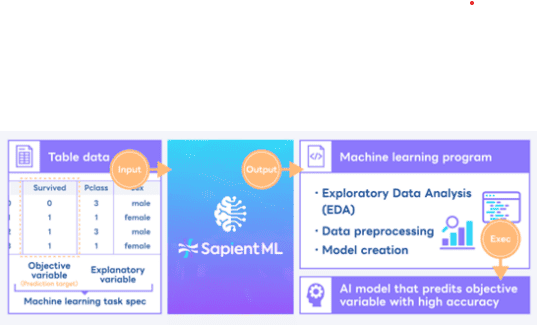The Linux Foundation is releasing solutions focused on edge infrastructure and the energy sector. It also announces collaborations around machine learning and AI with Fujitsu and ETSI.
The Linux Foundation’s Open Source Summit Europe 2023 brings innovations to the open-source community.
The Linux Foundation (LF) is partnering with Fujitsu and expanding its collaboration with ETSI. With Fujitsu, open-source software will be complemented by solutions focusing on machine learning and AI. The further collaboration with ETSI provides a new, expanded version of the Memorandum of Understanding (MoU). The novelties also focus on machine learning and AI.
Furthermore, two subgroups of the organization, LF Edge and LF Energy, are bringing new solutions to the open-source community. This will make Edge Sandbox available, as well as new software and research for the energy sector.
LF Edge Sandbox
The LF Edge sub-group is making Edge Sandbox available. This is a self-service platform to deploy LF Edge projects and solutions for edge devices.
The project is set up so that developers can quickly learn from it. Open-source project testing should also gain momentum with LF Edge Sandbox.
Any user with a Linux Foundation ID can set up an account for LF Edge Sandbox. From there, it is possible to choose from preset LF Edge project applications to deploy. In addition, it is possible to bring private applications to the project to run tests on practical use cases.
Machine learning and AI
Fujitsu is bringing technologies for machine learning and AI as open-source software. Two projects in total are involved. First is access to “SapientML,” software that automatically generates code for machine learning models. Data scientists can refine the models later.

Source: Linux Foundation
The other project grants access to ‘Intersectional Fairness,’ a technology that addresses biases in datasets used for training purposes. Specifically, the software looks for intersectional biases, combining different characteristics of individuals in the research group to detect biases.
The offering should democratize AI and make it accessible to developers worldwide. “Offering AI technologies as OSS to developers worldwide opens up new opportunities for
innovation across industries by lowering the barrier to entry,” said Vivek Mahajan, SEVP, CTO and CPO of Fujitsu Limited. The software is available immediately.
New version MoU
ETSI is dedicated to providing a global standard for ICT services that applies to all sectors. The European-recognized standards organization has worked with the Linux Foundation for several years.
Released in 2019, the Memorandum of Understanding (MoU) is getting an update with the advent of AI technologies, said Arpit Joshipura, general manager of Networking, Edge and IoT at the Linux Foundation.
Furthermore, the addition of several recent LF projects will expand MoU. ETSI is also adding some new topics which are sufficient for collaboration. The topics include zero-touch network management and ETSI Open Source groups.
Open source innovation in the energy sector
Finally, there are announcements for the energy sector. These come from the LF Energy subgroup, the open-source group focusing on software and hardware to decarbonise global economies.
The group publishes insights from three reports: the 2023 Energy Transformation Readiness Study, the Open Source Opportunity for Microgrids and the Open Source Sustainability Ecosystem. We highlight from the first report that 76 percent of energy sector stakeholders say their company has a clear plan for digitalization and already has that plan in place.
Furthermore, six projects functioning under LF Energy released major software releases in recent months. They are the Arras, FlexMeasures, OperatorFabric, Power Grid Model, PowSyBI and RTDIP projects.
The Linux Foundation sets up quite a few initiatives for the open-source community. That community can make good use of these extra resources as more and more open-source companies place their software behind a commercial license.
